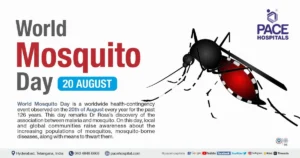BATTLING MALARIA IN NIGERIA: UNDERSTANDING THE PREVALENCE AND THE ROLE OF BG MAL IN EFFECTIVE PREVENTION AND TREATMENT.
The Prevalence of Malaria in Nigeria
Malaria Statistics: A National Health Crisis
Malaria remains one of the most significant public health challenges in Nigeria, accounting for the highest number of malaria cases globally. According to recent statistics, Nigeria bears 27% of the global malaria burden, with millions of cases reported annually. This endemic disease continues to strain the country’s healthcare system, with children under five and pregnant women being particularly vulnerable.
Regions Most Affected by Malaria
While malaria is prevalent across Nigeria, certain regions experience higher transmission rates due to environmental conditions conducive to mosquito breeding. The most affected regions include states in the southern and northern parts of Nigeria, where stagnant water and high temperatures create the perfect environment for mosquitoes.
Understanding the Burden on Health Systems and Communities
Malaria places immense pressure on Nigeria’s healthcare system, leading to overcrowded hospitals and clinics, overburdened healthcare workers, and limited resources for other health conditions. Beyond healthcare, malaria has a devastating impact on communities, with frequent outbreaks leading to loss of productivity and hindering economic development.
What Causes Malaria and How It Spreads
The Role of Mosquitoes in Malaria Transmission
Malaria is transmitted through the bite of infected female Anopheles mosquitoes. These mosquitoes thrive in warm climates, making Nigeria an ideal breeding ground. When they bite a person, the malaria parasite (Plasmodium) enters the bloodstream, initiating the infection.
Common Symptoms and Stages of Malaria
Malaria manifests through several stages, starting with symptoms such as fever, chills, and headaches. If left untreated, the infection progresses to more severe symptoms, including nausea, vomiting, muscle pain, and in severe cases, organ failure or death.
Risk Factors and Vulnerable Populations
Certain populations are at higher risk of contracting malaria. These include children under five, pregnant women, and individuals with compromised immune systems. People living in rural areas with limited access to healthcare and preventive measures are particularly vulnerable to severe outcomes.
The Socio-Economic Impact of Malaria in Nigeria
How Malaria Affects Work Productivity and Education
Malaria significantly affects Nigeria’s workforce, leading to loss of productivity as adults miss work due to illness. For children, malaria interrupts education, with repeated infections causing absenteeism and long-term learning challenges.
Economic Strain on Families and Communities
The cost of malaria treatment, combined with the inability to work, imposes a significant financial strain on families, particularly those in low-income areas. The economic burden extends to communities, where resources are diverted to address the constant health needs associated with malaria.
The Cost of Treatment and Loss of Life
In addition to direct medical expenses, families bear the cost of transportation to healthcare facilities and, in severe cases, the cost of funerals. The loss of life due to malaria is a tragic outcome that impacts families and the country’s development.
Current Approaches to Malaria Prevention and Treatment
Government Initiatives and Global Health Partnerships
The Nigerian government, in collaboration with international organizations like the World Health Organization (WHO) and UNICEF, has implemented various initiatives to control malaria. These include the distribution of insecticide-treated bed nets (ITNs) and the implementation of indoor residual spraying (IRS) programs.
Challenges with Medication Resistance and Prevention Efforts
Despite these efforts, challenges persist, including increasing resistance to commonly used malaria medications. This resistance complicates treatment and prevention, making it essential to explore alternative solutions that can effectively combat the disease.
Introducing BG Mal: An ultimate Solution for Malaria Prevention and Treatment
BG Mal is designed to prevent and treat malaria. It contains powerful ingredients like Artemisia annua (commonly known as sweet wormwood) and other ingredients known for their antimalarial properties. These ingredients work by attacking the malaria parasite at various stages of its life cycle, offering both treatment and preventive benefits.
The Benefits of BG MAL Over other Conventional Medications
BG Mal offer several advantages over conventional antimalarial medications. They are less likely to cause resistance, have fewer side effects, and are safe for long-term use in prevention. BG Mal provides fast relief from malaria symptoms, without the risk of the side effects often associated with chemical-based treatments.
Fast Relief from Malaria Symptoms Without Side Effects
Unlike many pharmaceutical options, BG Mal provides fast-acting relief from fever, chills, and headaches associated with malaria. Additionally, its natural formulation ensures users experience no adverse side effects, making it a safer option for both treatment and prevention.
Why BG Mal is the Right Choice for Malaria Protection
Proven Effectiveness in Reducing Malaria Cases
Clinical trials and user testimonials have shown that BG Mal significantly reduces the incidence of malaria, particularly in regions where the disease is prevalent. It offers reliable protection, making it a preferred option for families seeking a natural alternative.
Safe for Both Prevention and Treatment
One of the key benefits of BG Mal is its versatility. It is not only effective in treating active malaria infections but also works as a preventive measure. Regular use strengthens the body’s immunity against malaria, offering long-term protection.
How BG Mal Strengthens the Body’s Natural Defenses
BG Mal works by enhancing the body’s natural defenses, boosting immunity to fight off the malaria parasite. This holistic approach ensures that the body is equipped to handle both current infections and future exposure.
How to Use BG Mal for Maximum Protection
Recommended Dosage for Prevention and Treatment
For malaria prevention, a daily dosage of BG Mal is recommended during high transmission seasons or when traveling to malaria-prone areas. For treatment, it is advised to take the full course as prescribed to ensure complete elimination of the parasite.
Combining BG Mal with Other Preventative Measures
While BG Mal is highly effective, it is best used in combination with other preventive measures such as sleeping under insecticide-treated nets (ITNs) and using mosquito repellents. This multi-faceted approach ensures maximum protection.
Real-Life Stories: Success with BG Mal in Combating Malaria
Testimonials from Users Who Have Benefited from BG Mal
Many users have shared success stories of how BG Mal helped them overcome malaria. For some, BG Mal provided quick relief after conventional treatments failed, while others have praised its role in preventing recurrent infections.
Success in Reducing Malaria Recurrence
BG Mal’s natural formula has been credited with reducing the recurrence of malaria, particularly in individuals who had previously suffered multiple infections. Its ability to strengthen immunity has made a noticeable difference in malaria-prone communities.
Where to Get BG Mal and Start Protecting Your Family from Malaria
Availability, Purchase Information, and Trusted Vendors
BG Mal is available through trusted vendors and can be purchased online or in all pharmacies across Nigeria. By choosing BG Mal, families can take control of malaria prevention and protect their loved ones from this pervasive disease.
Conclusion
Malaria remains a critical public health issue in Nigeria, but with solutions like BG Mal, there is hope for better prevention and treatment. By leveraging natural ingredients and offering fast relief without side effects, BG Mal is positioned as a leading remedy for combating malaria.



